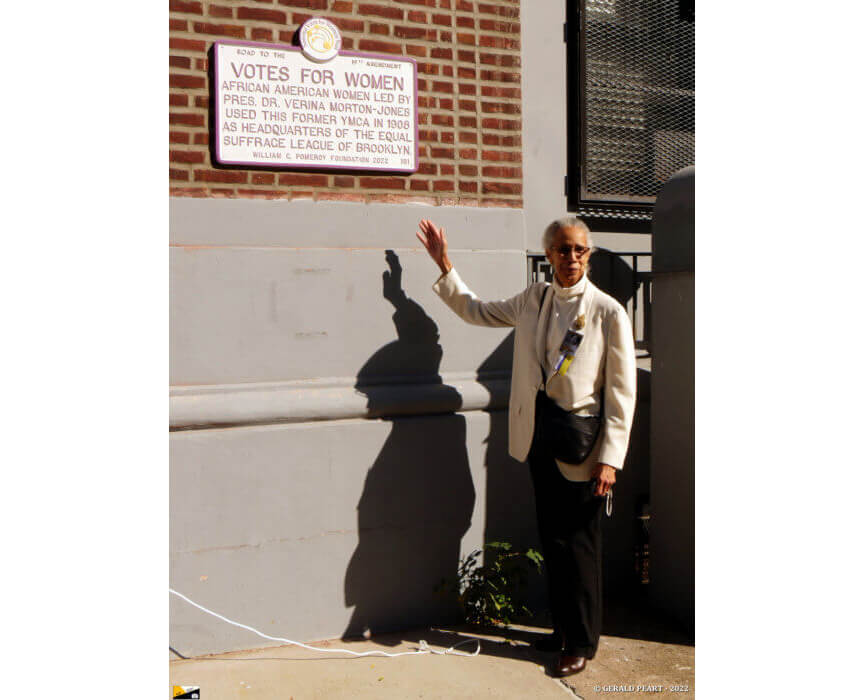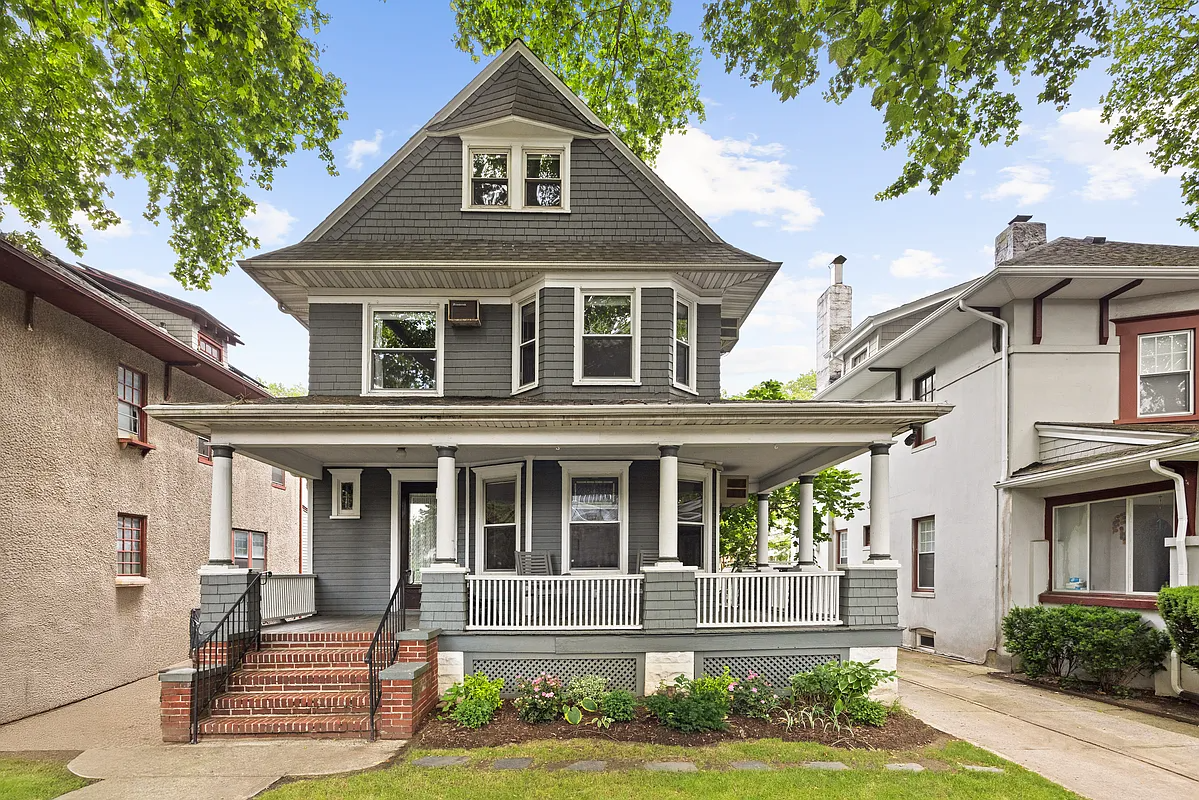Plaque Honoring the Work of Black Women in the Battle for Suffrage Unveiled in Fort Greene
The plaque marks the 100th anniversary of the 19th Amendment, which gave women the right to vote, and specifically honors the work of the Equal Suffrage League, which fought for the voting rights of Black women.

A plaque at the former headquarters of the Equal Suffrage League of Brooklyn commemorates the work of the women of the organization, who fought for Black women’s right to vote. Photo by Gerald Peart
The yellow shedding trees of Cuyler Gore Park in Fort Greene matched the clothing of many of the people gathered to the unveil of the first National Votes for Women Trail historical plaque in New York City on Saturday. Yellow, purple and white are the emblematic colors of the Women’s Suffrage movement, representing hope, loyalty and purity, respectively — and there was plenty of hope to go around that afternoon.
The plaque marks the 100th anniversary of the 19th Amendment, which gave women the right to vote, and specifically honors the work of the Equal Suffrage League, which fought for the voting rights of Black women, and its leaders — Sarah Smith Garnet, the group’s founder, and Dr. Verina Morton Jones, who served as the League’s president.
“It takes women’s leadership to ensure that women have their rights and to secure these rights going forward,” said New York Attorney General Letitia James at the ceremony. “No one should take them away.”

The plaque was placed on the side of 405 Carlton Avenue, the Equal Suffrage League’s former headquarters. The group moved into the building in 1908 and chose the location in part because the Young Men’s Christian Association in Brooklyn already had their offices there, said Dr. Judith Burgess, a member of the NVWT committee in New York.
“The location made a lot of sense because those men were some of the people the NVWT needed to turn into their allies in order to [achieve] equal suffrage,” said Burgess.
Burgess herself nominated the location to be added to the Trail, which marks important sites in the history of women’s suffrage all over the country.
“Here we will be reminded of the importance of voting and to stand on the shoulders of the women who we were celebrating because our rights came from their efforts,” she said.
Though the 19th Amendment marked an achievement in women’s suffrage, it did not truly grant all women the right to vote. Black women were intentionally left out of the suffrage movement, and restrictive laws and regulations prevented many Black Americans from voting until the 1960s, when the federal Voting Rights Act was passed. Brooklyn was home to a number of prominent Black activists, including Garnet, Jones and Victoria Earle Matthews.
Editor’s note: A version of this story originally ran in Brooklyn Paper. Click here to see the original story.
Related Stories
- Celebration in Kensington as a Stretch of McDonald Avenue Is Co-Named ‘Little Bangladesh’
- A Brownstone for a Remarkable Woman, Brookyn’s Pioneering Dr. Susan Smith McKinney Steward
- The Gloucester Family of Brooklyn
Email tips@brownstoner.com with further comments, questions or tips. Follow Brownstoner on Twitter and Instagram, and like us on Facebook.





What's Your Take? Leave a Comment